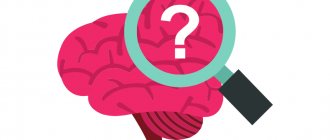“Titanic”, “Hachiko”, “Forrest Gump”, “The Green Mile”, “The Boy in the Striped Pajamas”, “The Notebook”... Films that became masterpieces. All these stories can touch to the core and even bring tears. Viewers are ready to cry and suffer because of the bitter fate or death of their favorite character. At the same time, they are absolutely aware that everything that happened on the screen is fictitious and does not specifically concern them. But the involvement still remains. This is empathy - the process of experiencing other people's emotions as one's own. A quality close to sympathy and empathy, but still significantly different from them.
What it is?
The generally accepted definition of empathy in psychology is: conscious empathy for the emotions of others while maintaining a sense of the external source of this emotional impulse. To explain in simple words, this is a person’s ability to feel the same as another: to sincerely rejoice with him (the mood improves, you want to jump to the ceiling with happiness and sing, the smile does not leave your face) or to grieve (the mood drops, there is a desire to cry, it gets bad). But at the same time, he does not forget for a minute that the source of such strong emotions does not concern him in any way, that these are not his personal experiences, but a completely different person.
This ability is explained not only by internal qualities. Yes, most often it is characteristic of those people who have been taught empathy and kindness since childhood. Often it is congenital. But these are not the only factors that determine it. Physiology is also involved here. In particular, the type of nervous system. Sensitive, vulnerable, impressionable natures quickly and emotionally react to the experiences of those around them.
Also to blame for this are the so-called mirror neurons of the brain, which were discovered in 1990 by Italian scientists Rizzolatti and Gallese. They reflect the state and behavior of other creatures.
So empathy is fundamentally an emotional and physiological process at the same time. As a psychological property, it involves the reflection of almost any other person’s emotion. From a physiological point of view, it manifests itself in the form of active facial expressions, gestures, tears, increased blood pressure, tachycardia, hyperhidrosis, limb tremor, etc.
How well do you recognize a child's feelings?
This test is an excellent indicator of mutual understanding between parents and children. Its second name is “Parent Matrix”. It consists of 5 situations to which you give your answer. In the end they sort everything out and you see where and how to act.
Why is emotional education important? Parenting is based not only on love, but also on understanding the child’s feelings. It is in an understanding family that he will grow up with initially developed emotional intelligence. Try to look from the outside to see if you understand your child - take the test.
Take the test →
We differentiate concepts
This is a fairly new term (it was introduced by E. Titchener in 1912), little studied and complex. Therefore, it is often confused with other related concepts.
Sympathy
What is the difference between sympathy and empathy? Let's start with the fact that sympathy is a stable emotional predisposition towards someone. You can feel it towards a colleague, neighbor, distant relative. This means that you like the person, you understand him, you find something in common, and you enjoy communicating with him.
Empathy is not stable. It can arise out of nowhere, completely unexpectedly. For example, we heard a pitiful story on the radio and burst into tears because we felt sorry for its main character. We saw a young man without legs in a wheelchair in the park - we got emotional, wanted to know the details of his fate and help, they came up and started talking, feeling his pain deep in their souls. But this does not mean that you like them, you do not compare them with yourself and are unlikely to be ready to continue communication in the future.
Sympathy
What is the difference between empathy and sympathy? The latter involves an expression of concern and care, a desire to help. But this does not mean at all that the sympathizer will experience the same emotions as the object of his worries. He will say words of support, provide all possible assistance, but nothing more.
To better understand the differences between these concepts, imagine the following situation. Someone fell into a deep hole and cannot get out. Sympathy is when a person passing by will sit on the edge and talk to the fallen person, maintaining his morale and spirit. A sympathizer will offer him to throw food there or go for help. And the empath will jump into his hole and share his fate with him.
Detailed Emotional Intelligence Test
This is a professional test that is free online and will help you determine your ability to understand yourself, others and influence them. Developed based on the theory of K. Petridis. There are 60 questions and a scale from “disagree” to “agree.” Using the cursor, you move the slider to the distance that suits you.
This is a detailed test that also determines your “emotional abilities” on 15 scales. And then he gives your detailed description of them. But be careful and take into account the rules for taking tests: you need to give quick answers, the ones that came to mind first. And also remember that only a psychologist can make the most accurate interpretation of the results.
Take the test →
Signs of an Empath
Empaths are usually easy to spot because the manifestation of this ability is quite vivid. Their characteristic features:
- high sensitivity to the emotions and experiences of other people;
- intuition: without even asking what happened, they guess about it;
- selflessness, compassion;
- the ability to sincerely forgive;
- curiosity;
- absent-mindedness and daydreaming;
- creativity: according to statistics, there are more empaths among artists, writers, musicians and designers than among accountants, lawyers and engineers;
- love of animals and nature;
- impatience with violence, cruelty, evil, injustice;
- love of freedom.
How does empathy manifest itself in communication? People with this ability:
- provide moral support without even asking what happened;
- do not know how to say “no”;
- sincere, frank and honest;
- are “vests” for the rest;
- know how to listen;
- they rarely open their inner world to anyone;
- cannot stand the company of two-faced and cruel people;
- put the interests of others above their own;
- will never leave you in trouble;
- true friends and spouses.
The problem is that if you show empathy too often, you will eventually burn out. Moral exhaustion leads to depression and conscious, voluntary seclusion.
How to improve emotional intelligence
Emotional intelligence is an important thing. He gives you an invisible shell through which barbs, sarcasm, irony and ignorance do not pass. You won't regret if you improve this skill in practice. You'll see how easier it will be to live with such a shell!
The “Emotional Intelligence” course will help you solve a lot of problems: misunderstandings with relatives, stress at work, and, in the end, you will understand why you sometimes feel so bad.
The course consists of 20 lessons. They teach:
- identify lies and “cut them in the bud”;
- see empathy and hidden emotions, change your opinion about people;
- shrewdly see all the hidden cockroaches of your interlocutor;
- identify a “rat” among friends who leaks information;
- do not show your emotions (turn on the “shell”);
- see and distance yourself from manipulation;
- establish relationships with those who would also not mind.
The cost of the course is 990 rubles.
And + bonus to advice: in addition to this small training program, on our blog you can choose one of 14 courses for EQ development.
And also if you don’t have time to study at all, from the word “AT ALL,” but you really want to raise your EI level, read the article on how to develop emotional intelligence, with effective exercises and tips.
Types of empathy
- emotional - imitation of the behavior of another person, projection of his motor and affective reactions;
- cognitive - empathy with the inclusion of intellectual processes (comparison, analysis, analogies, etc.);
- predicative - the ability to predict the affective reactions and behavior of another in certain situations.
Depending on the degree and brightness of the manifestation, there are also:
- increased - maximum level of empathy and involvement;
- average;
- understated;
- low.
What is the highest form of empathy? Empathy is feeling the same emotions that another person experiences through identification with him. Some experts also include empathy here - a responsive attitude to the experiences of others. But most people differentiate between these concepts.
Social intelligence by J. Guilford
This truthful psychodiagnostic technique was developed by a famous psychologist and is considered a standardized measurement technique. It is used by professionals. It is also labor-intensive in interpreting the results, but it can be completed online. Your personality findings are presented in a pop-up window.
The technique consists of 4 subtests that contain pictures and regular questions. As a result of their completion, you will receive data about your behavior in society, understanding of other people, adjustment or independence in relationships. On the main test page you will see links to all 4 subtests.
Take the test →
Pros and cons of this quality
Most people believe that understanding emotions and the ability to empathize are a big plus. After all, this means the presence of mercy, kindness and other high moral qualities. However, psychologists do not share this opinion and cannot say unequivocally whether such susceptibility has a good or bad effect on the person himself.
Pros:
- developed intuition, which allows you to avoid bad people and choose the right path in life;
- the ability to establish good relationships with literally everyone;
- universal love;
- rich inner world;
- high spirituality;
- creativity abilities;
- high level of intelligence;
- lack of resentment.
Minuses:
- inability to control emotions associated with other people's experiences;
- dependence of mood on others;
- risk of emotional burnout;
- financial problems (empaths give out money left and right to those who need it);
- closedness in oneself, inability to share one’s personal experiences, mental loneliness.
To those around them, empaths are worth their weight in gold. But they themselves often suffer from their strong and vivid emotions.
Diagnostics
To identify the presence and level of this ability, psychological diagnostics are carried out. The most popular methods are testing and empathy mapping.
Boyko's empathy test
Read the statements and put a plus or minus next to each.
Interpretation:
Give 1 point for each letter. See how much you scored for each of them. This means that some channels are well developed, while others are not very well developed or are completely absent.
Calculate the total number of points and determine the level:
- more than 30 points – high level of empathy;
- 22-29 - average;
- 15-21 - understated;
- less than 14 - very low.
Mehrabian Emotional Empathy Questionnaire
The task is the same as for the previous test.
Calculate your points:
You can take the tests yourself. They are often used to diagnose this ability in an adult. Only a psychologist works with the card, and it is often used to study the child’s psyche. It consists of 4 sectors: “speaks”, “thinks”, “does”, “feels”. A specific situation is specified, and the client fills out these fields and how he will react to it. Based on what is written, the specialist draws a conclusion.
A simple test to test your emotional intelligence
This questionnaire is not a professional technique, but it may help you shed light on your EI. Consists of 10 pictures, they contain 2 answer options or two pictures for one question. You can't go online here. You choose the picture or answer option that suits you best. This is option 1 or 2.
After choosing, you count the number of ones or twos. What more do you have, read the transcript of the results. There are also two options in the answers: either you have developed EQ or you don’t.
Take the test →











